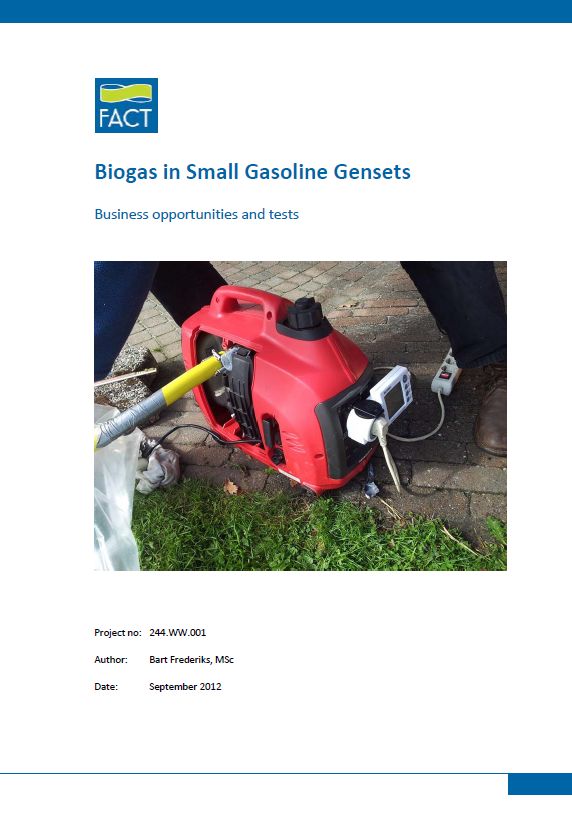Biogas in Small Gasoline Gensets

Biogas is the product of anaerobic digestion, the biological degradation of biomass in the absence of oxygen. It is mixture of methane and carbon dioxide, with traces of hydrogen, nitrogen and hydrogen sulfide. As a fuel gas, it can be used for a range of applications, including heating (cooking, drying), lighting, power (mechanical and electrical) and refrigeration. The production of biogas can be done at virtually any scale, and with different
technologies ranging from (very) simple to (very) complex.
The versatility of biogas, its relative ease of production and the wide availability of suitable feedstocks makes biogas an interesting energy technology for application in developing countries. As such, FACT Foundation has been promoting the technology for years, and has been working on means of investment cost reductions, feedstock availability, gas applications
and effluent processing. One of the issues that FACT is currently working on is finding business opportunities for SME’s , e.g. for producing electricity for battery charging and lighting. Small systems producing household energy have limited earning capacity, while larger systems (>10 kW) require
considerable investments that are outside the investing capacity of the typical entrepreneur. A small digester system with a 1‐5 kW generator set could be an interesting solution. Main issue in the development of a business case is the selection of a genset that can be modified to run on biogas; its performance, durability and costs. For this reason, FACT has decided to start a number of trials with a small gasoline generator, and, based on the results,
develop a business case for SME’s.
In parallel to this work, FACT has commissioned an entrepreneur in Uganda to conduct a range of real‐life trials with a small digester and generator set. The results of this work are expectedto become available mid‐2013.
